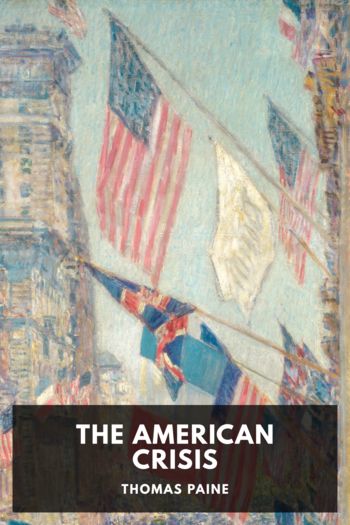Short Fiction, Vladimir Korolenko [finding audrey TXT] 📗

- Author: Vladimir Korolenko
Book online «Short Fiction, Vladimir Korolenko [finding audrey TXT] 📗». Author Vladimir Korolenko
She went away; but I knew that, so soon as the navigation should stop for the winter, she would come back and stand again in a corner of the room at our students’ meetings with her fair face, so expressive and full of life, thrown into strong relief by her dark dress. And again, her eyes would light up with childlike curiosity at our discussions, and flash with joyous approval when I happened to voice her own unspoken thought—and her cheeks would glow with the bright color brought from the health-giving Volga.
When she was present, whatever questions we discussed interested and enlivened me; but even without her, life was very bright. We had just finished the practical part of the academy course, and were having a vacation before the lectures began. We spent our time amusing ourselves, reading and talking.
III well remember the peculiar mood I was in at that time.
When I was a child, my greatest though forbidden delight was to go secretly into a wretched little shop and buy a sausage for three-half pence. Long afterwards, as a grown-up man, I hunted all the great provision shops in St. Petersburg for just such another sausage—one with the same flavor, but I never found what I sought. Sometimes, in the mingled odors of a sausage shop, I half recognized that particular smell, yet all the same I could not find it. That is quite natural: what I was really looking for were my childhood and the keen appetite of my infant years, and naturally I could not find them. If my simile seems to you too prosaic, change the sausage into an apple, or a peach, or anything you like. The fact remains the same. And this is why I mention it: every period of life has its own special flavor, the particular character of which we do not notice at the time. But so soon as the present is become the past and has moved a little way off from us, these peculiar characteristics of life stand out clear and call us back to them; where upon we regret the past, and wonder how it was we took so little notice of the enchanted atmosphere while it was round us, and failed to enjoy it consciously and to the full.
A few years pass: once more the present becomes the past, and we see again that it too, in its turn, had its own beauty, its own peculiar flavor. But when, on looking backward, we feel nothing save weariness or disgust—that is sad indeed. It means that life has lost its savor.
However, all this is off the point. As I was saying—at that period of my life, everything I went through, everything I felt, everything my intellect or imagination grasped, received a particular hue.
I read a great deal and learned much. Perhaps my learning was somewhat one-sided; in any case when I read those same authors over again now I find in them much which somehow escaped my notice then. On the other hand, passages which once appeared all important have faded into the general perspective and lost all character.
In every book I read, it was my habit to observe several distinguishing points which sank into my mind and became part of my own recollections. Thus, in Bokel I noticed especially, among others, that passage where he suggests a reason for the slavery of Ireland. The Irish, he says, are not free because they live on potato broth, while their conquerors eat flesh meat.
That is quite true. In any case, it is as true as the other proposition, that if the Irish were to become free and shake off the yoke of the English lords, they would probably choose nourishing beefsteaks in preference to potato broth. But in those days it did not occur to me to look at the other side of the medal and seek for deeper reasons. I accepted Bokel’s theory about meat and potatoes with all the warmth of a proselyte. His deductions were so simple, so clear; his lines seemed to be drawn so straight; first of all—yes just that, first of all—a “fowl in the pot,” and meat instead of potato broth, and meat for everybody. And after that, all which threw a light on the veracities of life: truth, justice, beauty, liberty, and the serving of higher interests generally. … Certainly that is rather a lot for one life. … But there was so much time before me—a whole eternity.
Another favorite writer of mine was Vogt. His portrait hung in my room, with the inscription: Gegen Dummheit kämpfen Götter selbst vergebens. The accuracy and solidity of scientific thought affected me in the same way that beauty affects its adorers. I simply worshipped this destroyer of metaphysical prejudices, and in my eyes his device placed him on the pedestal of a Titan or demigod. The gods fought against stupidity in vain, but the great man fights not in vain. Poor great man! I did not know that already he had been given the lie in the very metaphysics he so hated, and that stupidity had shown its power by creeping





Comments (0)